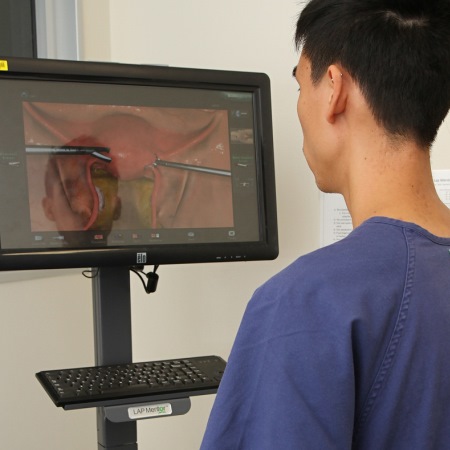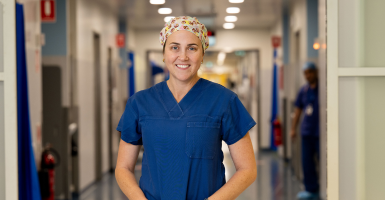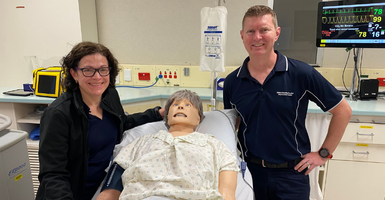The importance of realism in simulation-based education and training
 Important research conducted by Mater Education’s simulation team has recently been published in the international Advances in Simulation journal—the official publication for the Society of Europe for Simulation Applied to Medicine. The article ‘Is that realistic? The development of a realism assessment questionnaire and its application in appraising three simulators for gynaecology procedure’ details the importance of simulation-based education in training health and medical professionals.
Important research conducted by Mater Education’s simulation team has recently been published in the international Advances in Simulation journal—the official publication for the Society of Europe for Simulation Applied to Medicine. The article ‘Is that realistic? The development of a realism assessment questionnaire and its application in appraising three simulators for gynaecology procedure’ details the importance of simulation-based education in training health and medical professionals.
Mater Education’s Clinical Simulation Director Dr Sarah Janssens and fellow researchers, Dr Erin Wilson and Associate Professor Mike Beckmann investigated how different elements of simulator design contribute to a user’s impression of realism and performance.
The article discusses the results of the questionnaire they have developed to assess the realism of simulators used for gynaecological procedures.
Their published findings noted that where simulation involves models that are intended to replicate clinical or technical tasks, there are currently gaps in our understanding of what makes a simulator seem real to the learner.
Simulator realism is important in establishing a scenario that learners can embrace. This helps enhance participant engagement and create a safe context for simulation-based learning.
“Knowing which features of a simulator enhance a user’s perception of realism and performance is valuable when planning simulator design, or choosing between simulators to use in training,” said Clinical Simulation Director, Dr Sarah Janssens.
“We found that there was no significant relationship between a user’s experience and overall realism scores. This demonstrates that different experience levels didn’t change how realistic participants found the simulators,” said PhD student, Dr Erin Wilson.
The more that is understood about how the learner interprets different models, the greater opportunities can be made available to encourage continued learning in a controlled environment.
Three intrauterine contraceptive device (IUCD) simulators were selected for comparison. Doctors of varying experience performed an IUCD insertion on each of the three models and used the questionnaire to rate the realism and importance of each aspect of the simulators.
The designed questionnaire was able to discriminate between the models for perceived simulator realism.
“Despite the three simulators being very different in their look and feel, the anatomical structure of the simulator was not rated as highly as its function,” said Associate Professor Michael Beckmann.
It is hoped that findings from this study may assist simulator design and inform future development of a generic questionnaire for assessing user perceptions of simulator realism.
The team also anticipates that their more simplified tool for assessing user perceptions of simulator realism will be of interest to other researchers in this field.



